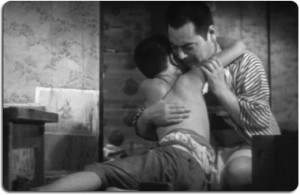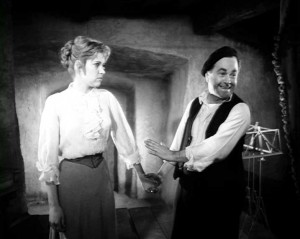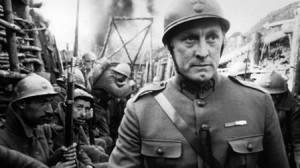
Inspired partly by King Vidor’s The Champ, this silent 1933 masterpiece by Yasujiro Ozu takes place in a Tokyo slum, where a slow-witted, good-hearted, heavy-drinking day laborer (Takeshi Sakamoto) tries to deal with his rebellious son (Tokkan Kozo). It opens with one of the funniest stretches of slapstick Ozu ever filmed, though the remainder is colored by Chaplinesque pathos. As the loving and lovable father, Sakamoto creates one of the most complex characters in Japanese cinema, and Kozo (who played the younger brother in I Was Born, But…) isn’t far behind. The milieu they inhabit is perfectly realized, making this a pinnacle in Ozu’s career. In Japanese with subtitles. 103 min. Dave Drazin will provide live piano accompaniment. Sun 2/6, 3 PM, Gene Siskel Film Center. Read more
From the August 10, 2004 Chicago Reader. — J.R.

The 1957 film that established Stanley Kubrick’s reputation, adapted by Kubrick, Calder Willingham, and Jim Thompson from Humphrey Cobb’s novel about French soldiers being tried for cowardice during World War I. Corrosively antiwar in its treatment of the corruption and incompetence of military commanders, it’s far from pacifist in spirit, and Kirk Douglas’s strong and angry performance as the officer defending the unjustly charged soldiers perfectly contains this contradiction. The remaining cast is equally resourceful and interesting: Adolphe Menjou, George Macready, Wayne Morris, Ralph Meeker, and the creepy Timothy Carey, giving perhaps his best performance. Banned in France for 18 years, this masterpiece still packs a wallop, though nothing in it is as simple as it may first appear; audiences are still arguing about the final sequence, which has been characterized as everything from a sentimental cop-out to the ultimate cynical twist. 86 min. A restored print will be shown. Music Box. (JR)
 Read more
Read more



